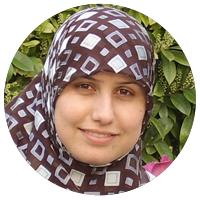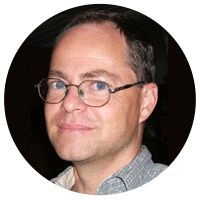
I have spent the past four months investigating the toxicity of zinc oxide nanoparticles in C.elegans as part of my MSc. in Biomedical and Molecular Sciences Research here at King’s. The experience has taught me a variety of nematology techniques, how to use specialist graphical software and quantitative PCR. I was also able to measure the production of reactive oxygen species using a dichlorofluorescein-diacetate (DCF-DA) assay.
The experience is proving to be a thoroughly enjoyable one and I am sure I will learn much more during my remaining two months here. During this time, I will use Raman microspectroscopy to analyse nanoparticles inside the nematode, work that will be done in collaboration with the Centre for Ecology and Hydrology, Wallingford.
The atmosphere in the lab has been great and I have found everyone I work with to be very friendly and helpful, which was essential to me. I have certainly learnt a great deal and my time here has been an invaluable learning experience.

I had the opportunity to undertake a 9 month research project for my MRes at Stephen Sturzenbaum’s lab. During my time in the laboratory, I worked with C.elegans and I was trained in a wide variety of techniques, such as qPCR, fluorescent microscopy and the comet assay. By the end of the project, I acquired the necessary tools and transferable skills that will help me do well in my PhD which I have now started. Being part of this research team was a great experience. Stephen is a very approachable supervisor and I was able to count on the group and his support at all times.

After obtaining my M.Sc. in Molecular Life Sciences, I wanted to chase my dream of securing a PhD position that would train me to become a research active scientist. I didn’t have to search long: the good reputation and track record of Dr Sturzenbaum and his research group appealed to me. During my PhD I worked on the small nematode C.elegans to study mechanistic “omic” aspects of heavy metals and reactive oxygen species. As part of the project, I had the opportunity to work in the Synchrotron Radiation Source (SRS) Laboratory in Daresbury, and build a working collaboration with scientists at Warwick University and Imperial College London.
I completed my PhD in just over three years and it is hard for me to summarize in few lines how much I enjoyed my journey with those little monsters (the worms!). I enjoyed being in a multi-cultural research group where I had much to share academically and socially. Of course, a PhD project always involves many challenges but I always knew I could count on my supervisor`s and my friends` support – surely one of the most important qualities when sharing the ups and downs of science!

Over the past 10 years we have collaborated on numerous projects which have all focused on C.elegans toxicological and ecological genomics. Stephen has played an instrumental role in our collaborative projects. For example the award of a BBSRC funded fellowship allowed me to work for an extended period in Stephen’s lab which proved to be an invaluable and highly prolific experience. Overall, I value Stephen’s professional and reliable personality. I consider him to be an outstanding scientist and communicator but equally also an organized, helpful and enthusiastic mentor: I would like to encourage students and young scientists to join this very productive laboratory.
I first met Dr Stephen Sturzenbaum when he returned to Cardiff University on a prestigious Royal Society Research fellowship. His approach to combine experimental genetics of response to toxicity in Caenorhabditis with tackling the genomics of earthworms and their toxicological responses bridges the gap between a model laboratory organism and one that has extreme fundamental and practical environmental significance. The financial support of the initiative to sequence the earthworm is testament to its timeliness and importance. He is helping to establish a new field and is thriving within it.